Spring 2021 has been a particularly busy time for the Śivadharma Project team members and friends: besides the usual reading sessions happening three times per week, we have organized a series of online seminars around our research topics, open to all team members and invited guests. This series of fourteen talks has been very successful, attracting an ever growing number of participants and helping us both getting important feedback on our work and expanding our knowledge on several topics that are relevant to our research. At a time when many of us were isolated at home, and new team members had joined the project only virtually, the 2021 Spring Seminars also helped us create a sense of community and purpose within the project. We do hope we can repeat this experience soon, with real people instead of Zoom avatars!
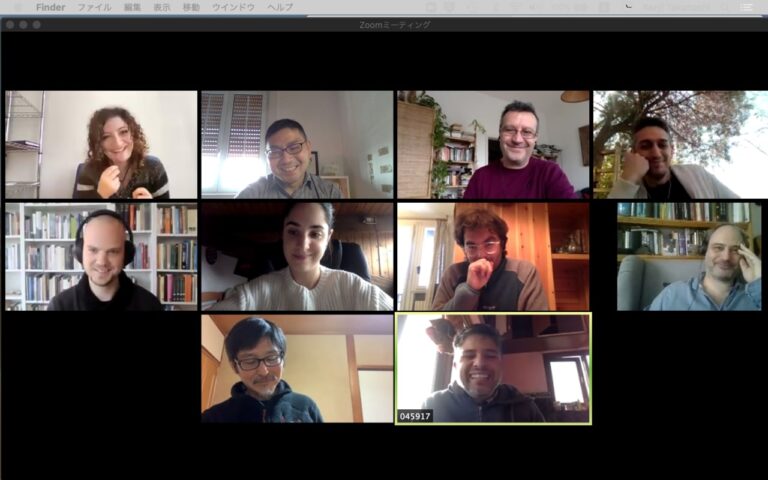
We opened the floor on March 9th with Alessandro Battistini’s talk “Philology of a Love Poem 1: Placing the Śivabhikṣāṭanakāvya in Context” (Read more about it at this link), and we continued on March 23rd with a talk by Lucas den Boer, “The Presence of Śiva at Nālandā” and on March 31st with Nirajan Kafle’s contribution on: “Back to Smārta: The Dharmaśāstra of Umāmaheśvarasaṃvāda“. On April 13th, Florinda De Simini presented her research on “Purāṇic Retellings of the Śivadharmottara: The Vāyavīyasaṃhitā of the Śivapurāṇa.
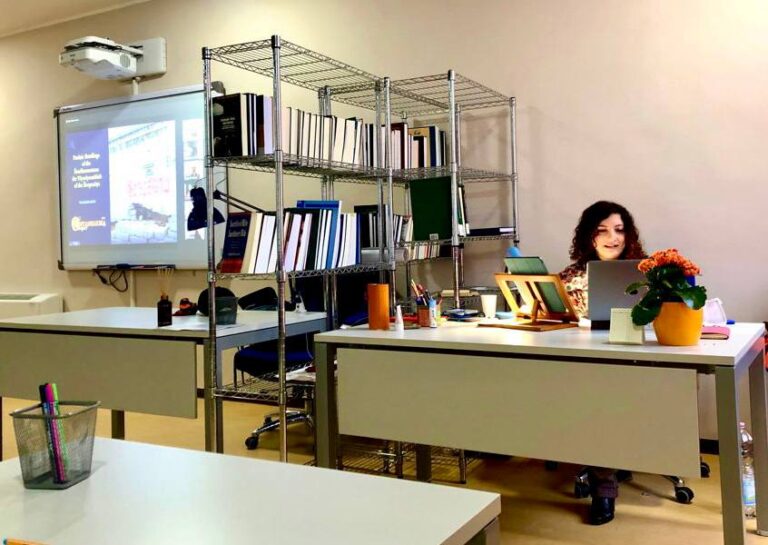
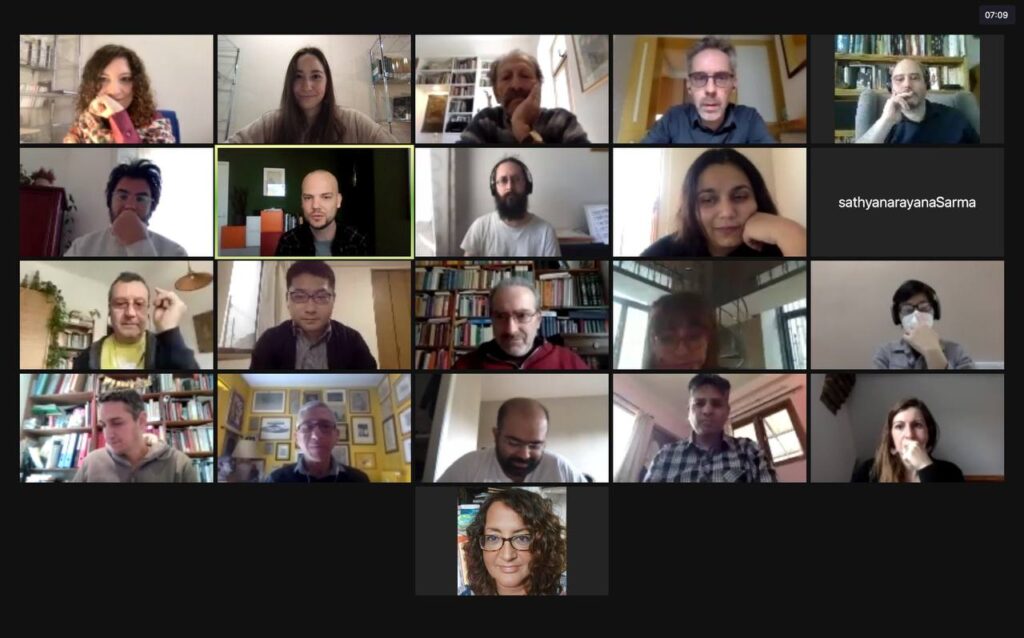
On April 20th, we hosted a talk by Prof. Peter Bisschop (Leiden University) “From Śivadharma to Sauradharma: The Palimpsest of the Bhaviṣyapurāṇa“, about the rewriting of the Śivadharmaśāsta in the Bhaviṣyapurāṇa. On April 30th it was time for a talk by Kenji Takahashi, who has been active at the University of Naples from April 2019 to April 2021, S. Saravanan (EFEO, Pondicherry), and R. Sathyanarayana (EFEO, Pondicherry), on Networks of Hells within the Śivadharma Corpus and Beyond, discussing the Hells described in chapter 7 of the Śivadharmottara, which we are also reading in its Tamil version in the Civatarumōttaram (read more about it at this link). Our programme continued on May 5th with a talk by Csaba Kiss, local team member of the Dharma Project, titled “Where are the tanmātras?!”
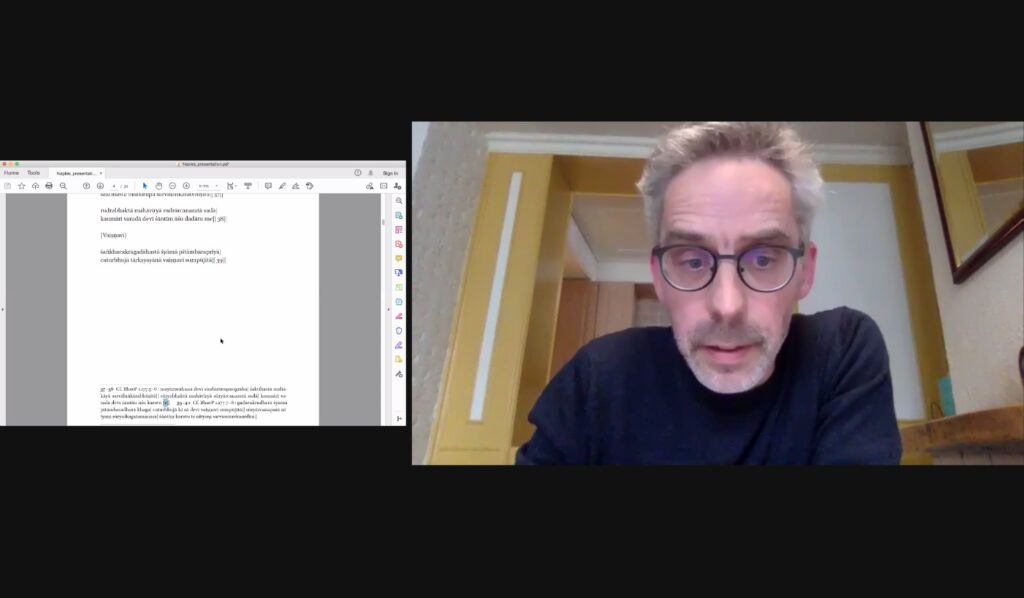
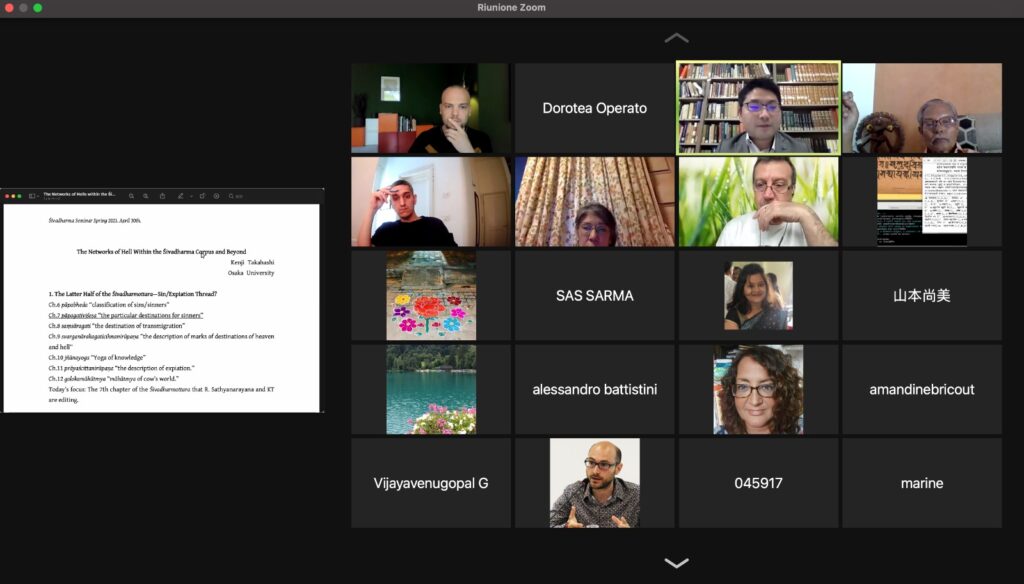
Hindu Hells were again the topic of S. Sathyanarayanan’s talk on “Journeys to Hell: Comparison of Śivadharmottara 7 with Descriptions in Smārta Sources and Practices in South India”, on May 14th. On May 19th we moved to the history of yoga, with a talk by team member Kengo Harimoto titled “Hiraṇyagarbha’s Yoga System Adopted by the Śaivas”. The talk by Judit Törzsök (École pratique des hautes études, Paris) on May 25th, “On how Garuḍa was Taught Śaivism: Some Remarks on Ch. 17 of the Haracaritacintāmaṇi” offered important insights into lay Śaivism in medieval Kashmir, an area where the Śivadharma circulated, as attested exactly by the Haracaritacintāmaṇi.
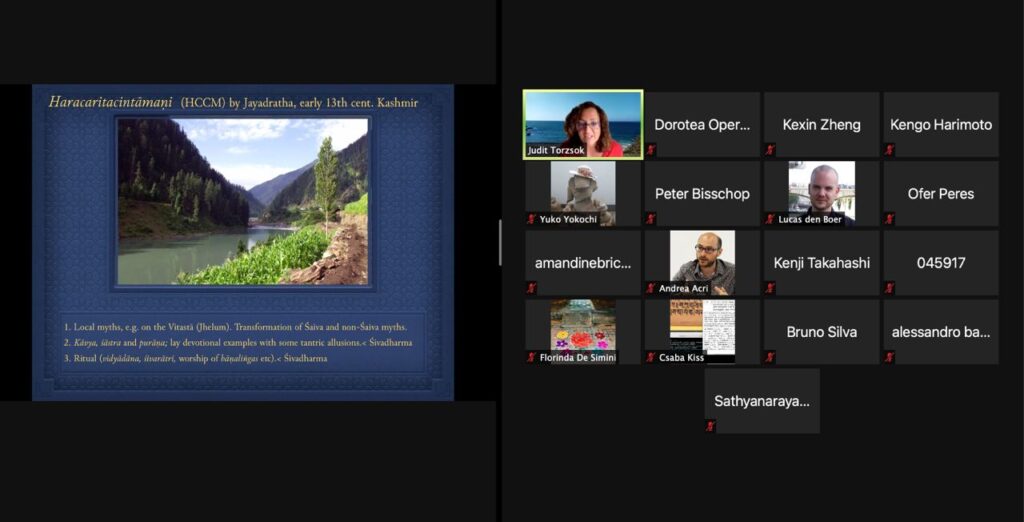
The month of June was entirely dedicated to our Tamil sub-project. On June 4th, team member Ofer Peres discussed with us “The 16th Century Tamil Śaiva Milieu Through the Prism of Maṟaiñāṉa-campantar’s Talapurāṇams”, while on June 14th we had the pleasure of hosting a lecture by David Shulman (Hebrew University of Jerusalem, PI of the ERC Project NEEM) on “The Story of Sukumara the Rogue in an Eighteenth-century Jaffna Version: Varatarāca Kavirāyar’s Civarāttiripurāṇam”. On June 25th, the Śivadharma Seminars hosted a group talk by former team member Margherita Trento (Marie Skłodowska-Curie Fellow), team members T. Rajarethinam (EFEO, Pondicherry) and K. Nachimuthu (EFEO, Pondicherry) on “The Tamil Civatarumōttaram (16th cent.) and Its Transmission in the Taṇikkaippurāṇam (18th cent.)”. The series of seminars was closed by SAS Sarma (EFEO, Pondicherry) and Dominic Goodall (EFEO, Pondicherry), who presented their research on “The influence of the Śivadharma in South India: An Unpublished Sanskrit Commentary on the Śivadharmaśāstra and the Śivadharmottara from Kerala”.
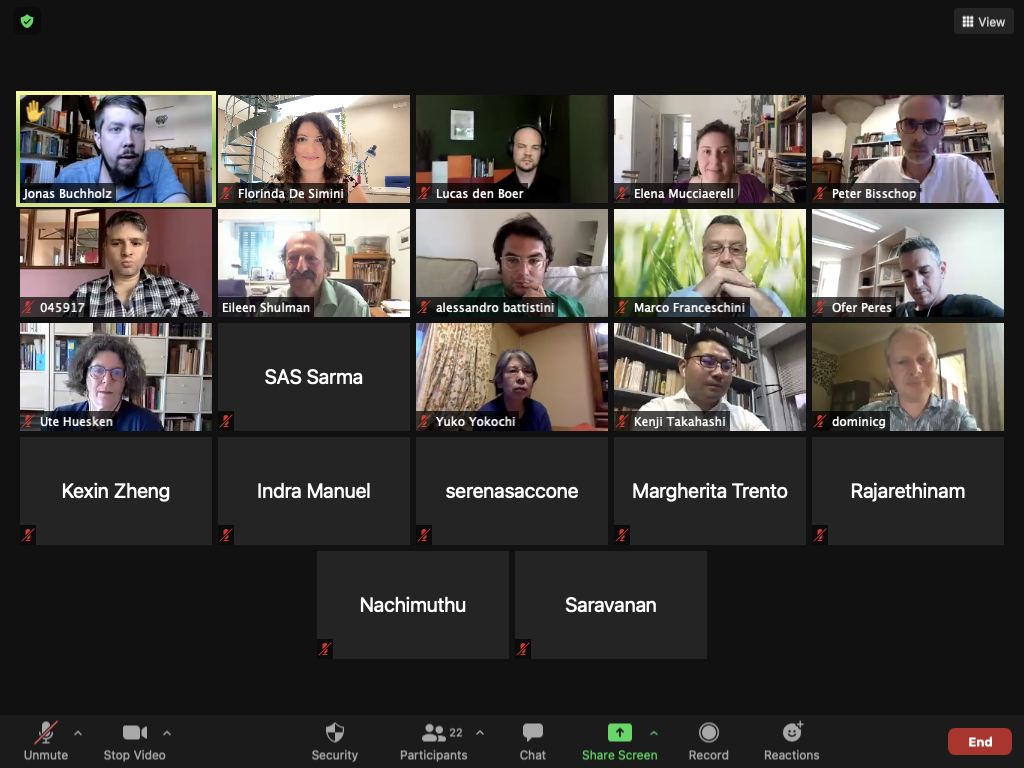
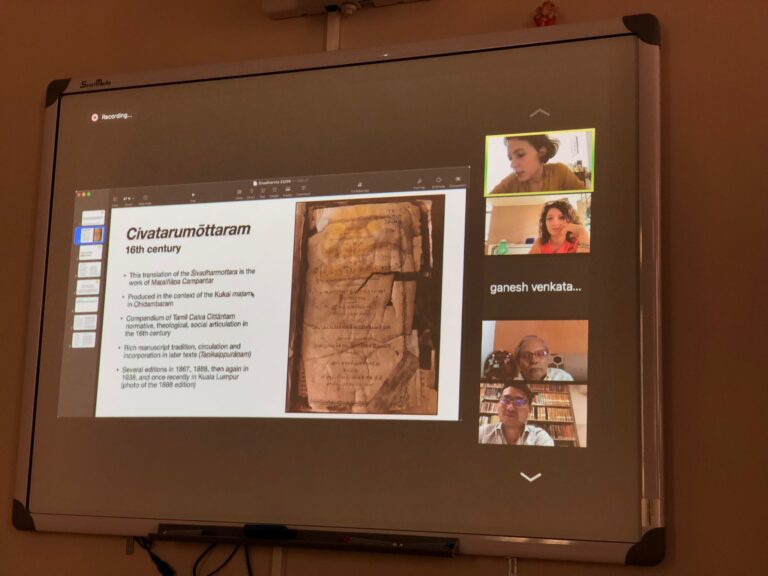
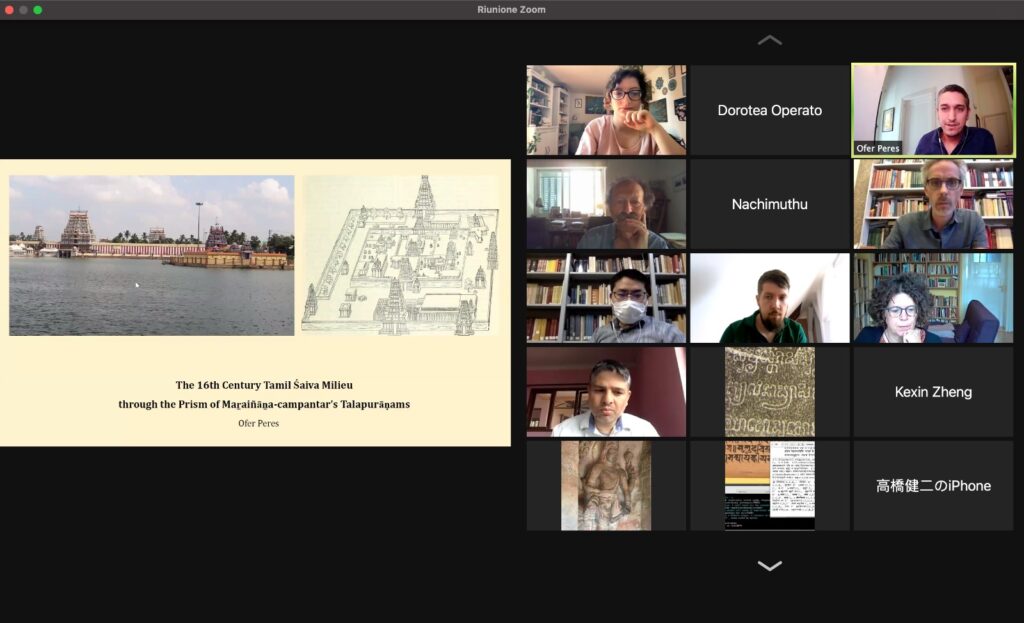
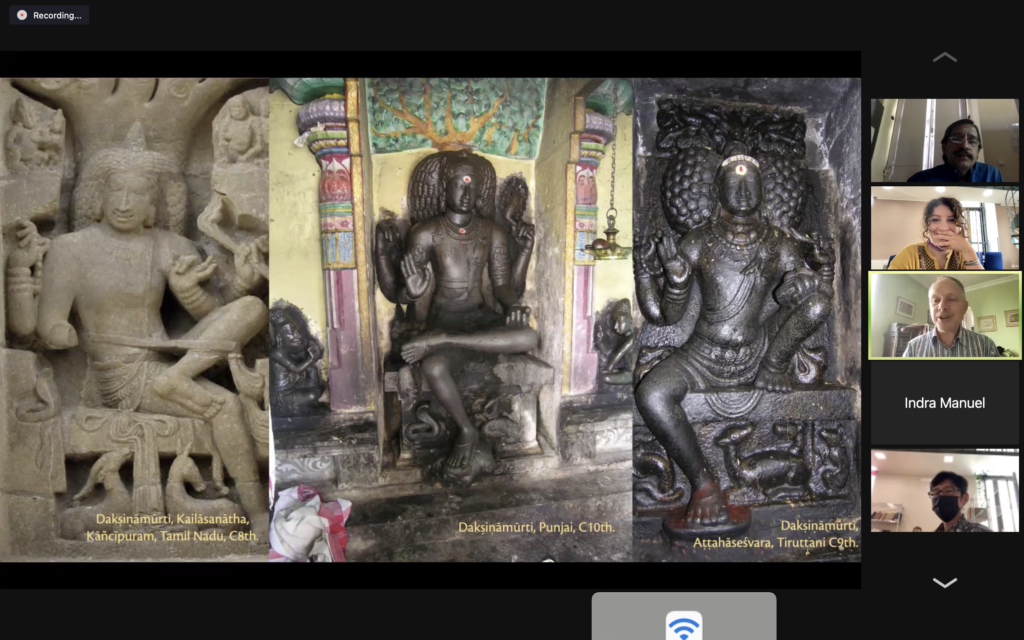
You can stay updated on our activities by following our social media accounts:
